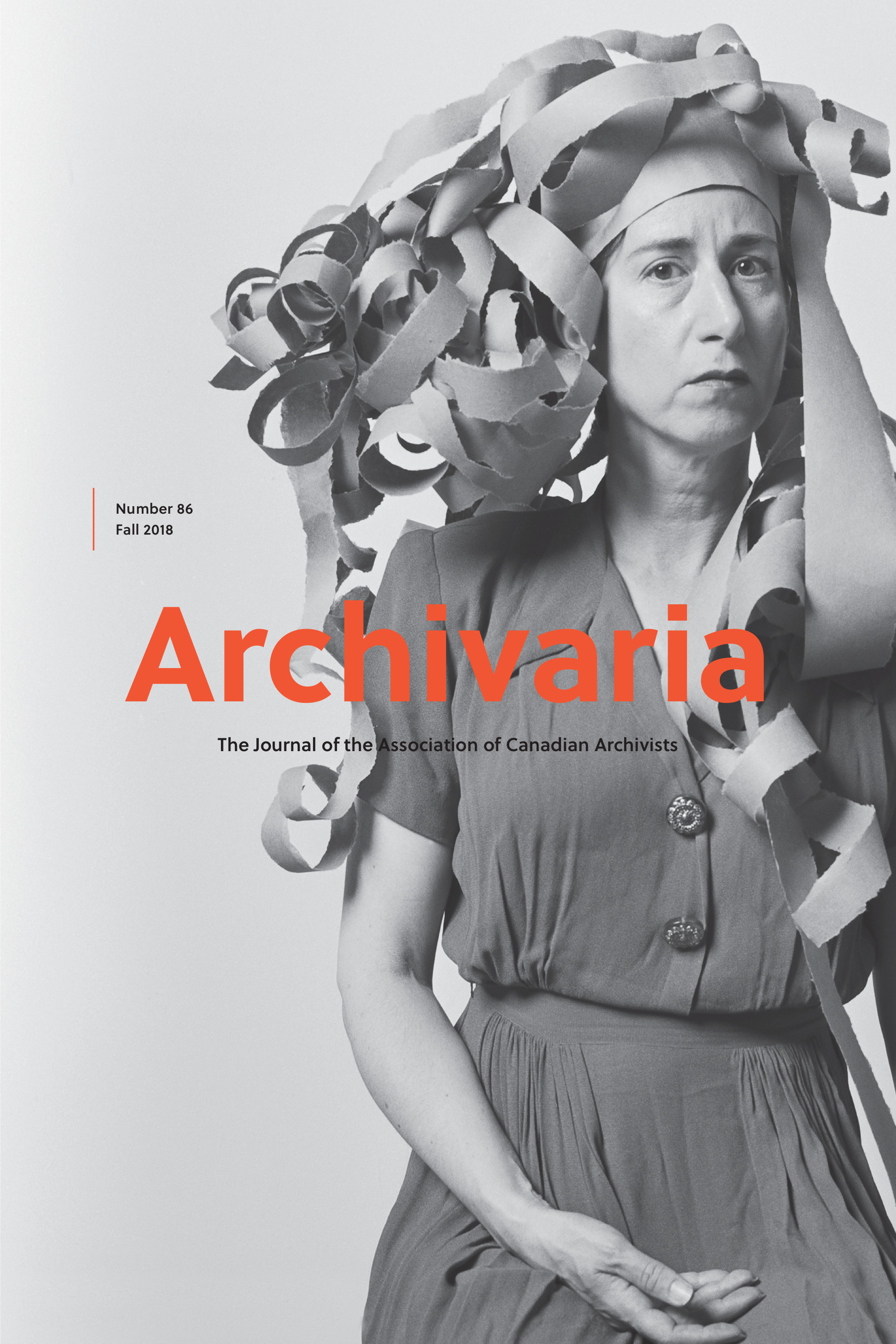Omelettes in the Stack: Archival Fragility and the Aforeafter
Abstract
In Beckett’s novel, the eponymous Molloy suffers in equal measure an inability to remember and a failure to forget. He is a cipher for the archive and all its discontents. As a way of thinking through archival discontent, this article introduces two new expressions into archival discourse: aforeafter, to describe the condition of archival temporality and the archival tense (that which is over and goes on), and archival fragility, to name the discomfort of archivists confronted with proximate damages of their professional practice. As part of the conversations about and ongoing reassessments of archival power and function, I offer the aforeafter as an instrument in resituating the archive as sociocultural form and archival fragility as a means to help identify catalyzing moments where archivists can choose between hubris or humility in their working approaches to codified archival practices. The article proposes that disruption to archival language is necessary to support both progressive shifts in archival practice and theoretical moves to deterritorialize normative-destructive archives.
RÉSUMÉ
Dans le roman de Beckett, le héros éponyme Molloy souffre à la fois de l’inaptitude de se rappeler et de l’incapacité d’oublier, offrant une clé pour comprendre les archives et tous ses malaises. Pour penser cette insatisfaction archivistique, cet article introduit deux nouvelles expressions dans le discours des archives : le « susaprès » (« aforeafter »), pour décrire la condition de temporalité archivistique et le temps archivistique (ce qui est terminé et qui se poursuit), et la « fragilité archivistique » (« archival fragility »), pour nommer le malaise des archivistes qui sont confrontés aux dommages immédiats de leur pratique professionnelle. Pour contribuer aux discussions portant sur la constante réévaluation des pouvoirs et des fonctions archivistiques, et à cette réévaluation même, j’offre le « susaprès » comme instrument pour resituer les archives dans leur forme socioculturelle, et la « fragilité archivistique » comme moyen pour aider à identifier les moments catalyseurs où les archivistes peuvent choisir entre l’hubris et l’humilité par leurs approches aux pratiques archivistiques codifiées dans leur travail. Cet article propose que la perturbation du langage archivistique est nécessaire pour appuyer à la fois les changements progressifs dans la pratique archivistique et les mouvements théoriques vers la déterritorialisation des archives normatives-destructives.
Authors of manuscripts accepted for publication retain copyright in their work. They are required to sign the Agreement on Authors' Rights and Responsibilities that permits Archivaria to publish and disseminate the work in print and electronically. In the same agreement, authors are required to confirm that "the material submitted for publication in Archivaria, both in its paper and electronic versions, including reproductions of other works (e.g. photographs, maps, etc.) does not infringe upon any existing copyright." Authors of manuscripts accepted for publication retain copyright in their work and are able to publish their articles in institutional repositories or elsewhere as long as the piece is posted after its original appearance on archivaria.ca. Any reproduction within one year following the date of this agreement requires the permission of the General Editor.





